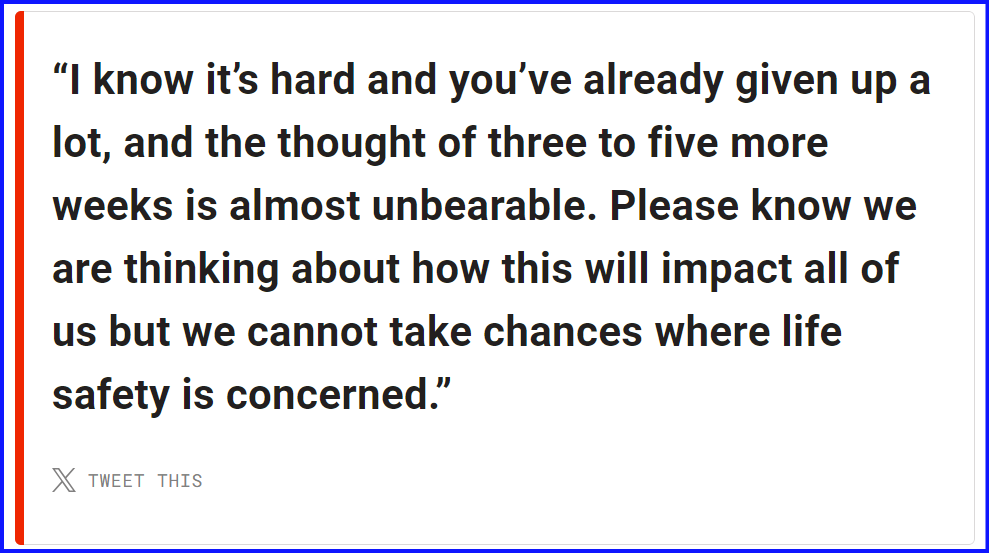“Calgary will run out of water if usage doesn’t drop.” A major water main break last week spilled thousands of liters and sparked a state of emergency. Everyone needed to cut usage if there was going to be enough for everyone.
OK, we could do that for a few days. But it took days just to find the source of the break, with additional days to divert around the damage, all while the leak continued. We are used to unlimited access to water. Severe restrictions were a tough challenge for behavior change.
The easiest thing to do during change is nothing…and predictably, many people did just that. When a change impacts a large population, it’s easy to assume that everyone else will carry the load. Within the first few days there were 300 complaints about water misuse as people continued to water lawns and wash cars.
How do you get people to comply?
Lead with purpose. People need to understand how changes impact people personally. Your long shower may make it impossible for another person to mix baby formula or put out a fire.

You cannot sustain a change without consequences. Mayor Gondek’s expressions of gratitude to Calgarians for their efforts were on point, but when people see neighbors getting away with bad behavior, it makes them think, “Why should I bother?” and compliance weakens.
Share stories. We’ve been blessed with some rain and Mayor Gondek commended the “ingenious” ways Calgarians collected water with buckets, milk jugs, and rain barrels. She shared how a local pub was conserving by limiting use of ice and using leftover drinks to water the plants.
Be honest about the worst case. One of the most asked questions during difficult change is, “How long?” What began as one week of restrictions became two, and has now added up to another five as more pipe damage was uncovered. You can imagine the shock. We thought we were close to the end, but now the pain endures. It would have been better to communicate the worst case early: “If we find more damage, restrictions may need to continue for weeks rather than days.”
Keep communicating. The mayor committed to twice daily updates, a smart move when people are desperate for information and sharing can help them comply and sustain hope. It also prevents people from generating their own “facts” about what is happening.
Asking people to navigate difficult change is not easy, but these strategies work:
- Communicate early and often
- Connect the change with purpose
- Make the consequences for compliance and resistance clear
- Set an expectation that the requirements may change
- Share stories of success
If you would like to learn more about these and additional strategies for helping people through challenging change, check out my book, Dancing with Disruption.
Thoughtfully yours,
Jeff Skipper



